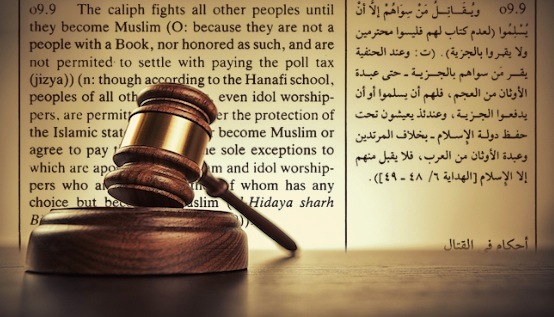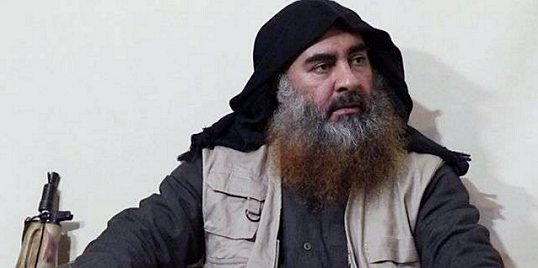I frequently read prescriptive assertions that begin with the words “We should” or “We need to”. Since I generally hang out among fellow Deplorables, such sentences usually conclude with an action based on a right-wing policy position — “close the borders”, “deport all the Muslims”, “ban mosques”, “hang the globalists”, etc., etc.
I always ponder what the word “we” might refer to in such statements. Does it mean “Myself, my brother, my uncle, and a few of my friends”? “The congregation of my church”? “The United States Congress”? “The UN”? “The Provisional Tribunal of Justice established after the revolution finally takes place”?
I’ve written in the past about this mysterious “we” that needs or ought to do certain things that never actually get done. “We” need to do these things, but somehow “we” never do. Why is that?
The Progressive “we” is another matter. If you’re on the Left, one of the most important things “we” need to do is to institute arms control of one form or another. Whether it’s nuclear weapons, standing armies, or guns in the hands of private citizens, “we” need to get rid of them, to ensure that peace will reign. Just imagine… it’s easy if you try.
The most cherished anthem of arms control in the Progressive Liturgy is Bob Dylan’s song “Blowin’ in the Wind”, which contains these lines:
Yes, ’n’ how many times must the cannon balls fly
Before they’re forever banned?
You can tell it’s a hip song, because he drops the “g” from all his participles and reduces “and” to “’n’”.
I was in junior high school when I first heard it. Not Bob Dylan’s version, mind you — it would be several years before I heard the Bard of Greenwich Village sing one of his own songs — but the smash hit by Peter, Paul and Mary. Even back then, when I was a pencil-necked teenage geek, I understood that the sentiment in the song didn’t make any sense.
It was irrational, and ultimately meaningless. Nowadays I would call it “virtue-signalling”, but in 1963 it was just hip and cool and high-minded.
Let’s think about banning cannon balls. How would “we” do it?
“We” would have to include national governments in the process, so major military powers would be called on to negotiate a treaty. If one posits the existence of the United Nations, then it would have to be involved. After lengthy multilateral discussions, the Cannon Control Treaty would finally be signed by all parties and come into force. From then on, cannon balls would be forever banned.
Unfortunately, some years later the Central Asian nation of Ollistan secretly violates the terms of the treaty: its armament factories begin building caissons and casting barrels and balls to make cannons. When the intelligence services of major cannon-free nations learn about the violation, they’re in a quandary. How can they stop Ollistan’s cannons, when they have no cannons themselves? The only thing that could bring the violator to heel would be a bigger cannon.
This is where the UN comes in. If it doesn’t already exist, the cannon-free nations will have to sign a new treaty bringing it into existence. It will be granted the privilege of maintaining a large enough force of cannons so that any treaty-violators will be subdued before a single cannon ball can fly (other than a UN cannon ball, of course). A brand new state-of-the-art Supersized Nuclear Cannon is the preferred weapon in the UN’s new arsenal. It can stop any uppity cannon-making country in its tracks.
Take that, Ollistan! Problem solved.
The UN now has a vast stockpile of cannons that must be kept ready in case another violator appears. What to do with them in the meantime? It seems a shame to waste all that cannon-power.
Well, the nation of Bucolia has just elected a populist president who refuses to implement the UN’s mandated wetlands policy. Fortunately, his deplorable country has no cannons, so it’s a simple matter to reduce its capital city to a smoking crater. Which then becomes a wetland after the next monsoon.
Meanwhile, the nation of Orwellia has declined to admit its quota of UN-sponsored refugees. Just roll out Big Bertha, and all that shiny new border fencing is reduced to a mass of shattered concrete and twisted steel, allowing the puir wee migrant bairns unimpeded entry into the country.
Yes, those special UN cannons really come in handy for maintaining order and implementing public policy in a cannon-free world.
* * * * * * * * * * * * * * *
When I started this essay I didn’t intend to write a fable, but then I kind of wandered off track. So now I’ll return to it.
My point is that any prescriptive policy statement carries an implicit threat of coercive force to ensure its implementation. If “we” decide to prohibit, require, ban, mandate, or proscribe, the implication is that “we” will have the firepower to enforce compliance. If citizens are disinclined to do what’s required of them, or want to enjoy what is prohibited, then a massive state apparatus of coercion may become necessary, up to and including uniformed police, secret police, national police, security police, an army, a navy, an air force, electronic surveillance, drones, and satellite tracking systems. Oh, and also lots of cannons.
The above description applies to any mandates or prohibitions, regardless of ideology. Whether “we” demand conservative or progressive behavior by citizens, the enforcement of “our” demands implies a swollen, intrusive state. No matter what “we” want to impose on others, the less people want to do it, the more jackbooted thugs will be required to make them.
I’ll give you an example from the deplorable end of the spectrum. Suppose “we” decided to vet potential immigrants for their level of Islamic ideology, to determine whether they were dangerous to national security. Can you imagine the size of the federal agency that would have to be created to do the job? A veritable behemoth of bureaucracy, complete with civil service regulations, mandated procedures, record-keeping requirements, diversity officers, ombudsmen, and whistle-blower protections. It would grow bigger every year, and even so, 98.6% of all Muslim applicants would be admitted, because… Human Rights.
And I almost forgot: just as with all other federal agencies, a large proportion of its employees would carry firearms on the job.
On the other side of the political fence, if “we” ban assault weapons, “our” agents have to possess even more powerful weapons to take them away from people.
Or suppose a state government were to implement a law prohibiting any restrictions on the possession of firearms (fat chance!). Then suppose a locality within that state passes a law restricting the use of certain weapons. How would the state enforce its regulation, except through the use of superior firepower?
It seems an impossible idyll now, but the state used to be smaller and less powerful, at least here in the USA. Is there any way to reclaim that earlier environment?
Obviously, a government mandate is not the preferred method, or “we” would have to roll out the cannons to make sure it happens.
What conditions would be necessary for general liberty to re-established among a free people?
That’s a big topic. With luck, I’ll be able to return to it in a later essay.
 Opponents of Venezuelan President Nicolas Maduro have taken to the streets of Caracas in massive protests, clashing with soldiers. Videos show armored vehicles running over the demonstrators. Opposition leader Juan Guaido called for the military to join him in overthrowing Mr. Maduro, but so far the army seems to be maintaining its support of the current regime.
Opponents of Venezuelan President Nicolas Maduro have taken to the streets of Caracas in massive protests, clashing with soldiers. Videos show armored vehicles running over the demonstrators. Opposition leader Juan Guaido called for the military to join him in overthrowing Mr. Maduro, but so far the army seems to be maintaining its support of the current regime.





